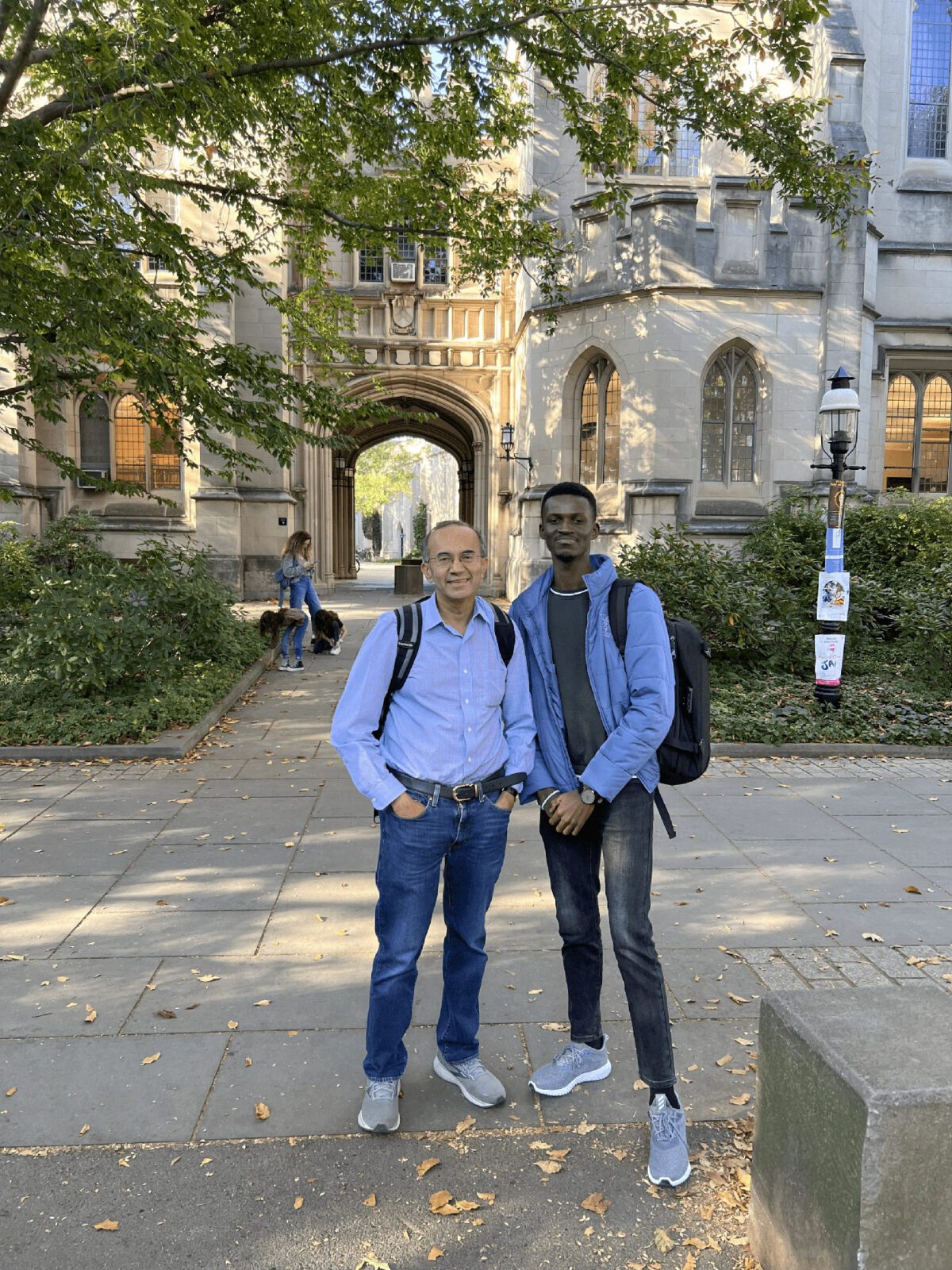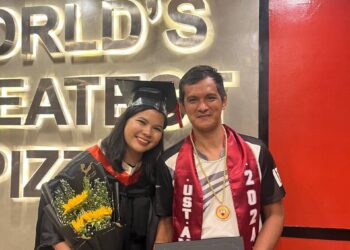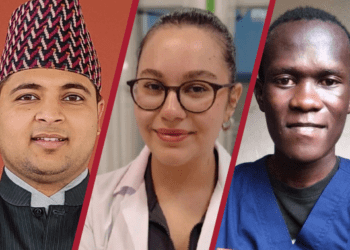
Embarking on an extraordinary journey from Makurdi in Benue State, Nigeria, to the prestigious halls of Princeton University, Aspire Leaders Program alumnus, Godwin Obi, shared an inspiring narrative of resilience, determination, and the transformative power of education in a recent interview.
Now a doctoral candidate in the department of Mechanical and Aerospace Engineering working to influence policies that will allow the U.S. and the world to reach net-zero carbon emissions, Obi navigated the challenges of being a first-generation college student with an unwavering belief in inherited potential and the value of education. From working with his father in an automobile shop to founding the University of Nigeria Scholar Accelerator and going on to a graduate program at Princeton University, his story is a testament to the impact of mentorship, global opportunities, and the Aspire Leaders Program.
Recently, our Communications and Outreach Manager, Jenna Maurer, and Aspire Institute Co-Founder and Princeton alum, Tarun Khanna, had the opportunity to meet with Obi on Princeton’s campus and ask him some questions about his journey.
Can you tell me more about your growing up, background, and navigating your way to university as a first-generation college student?
I grew up in Makurdi, Benue State, Nigeria, where my family still lives. My dad ran an automobile workshop. I worked with him for over five years throughout my high school days – an experience which would later inspire my decision to study mechanical engineering. My mom ran a kiosk and tried numerous small skill-based businesses [such as] soap making, baking, [and] tailoring to support the family. Although my dad never attended high school, and my mom never attended college, they were very talented and well known in the area for their crafts. They also valued education and were determined, despite extreme difficulties, to give each of their children a formal education.
My parents valued education and were determined, despite extreme difficulties, to give each of their five children a formal education.
I was the first of five children, and at a young age, my trust in my abilities was built on the belief that I inherited my parents’ potential. As a first-generation student, navigating college was extremely challenging. You just never get enough of anything: money, resources, comfort, etc. Despite formidable challenges, I worked hard and emerged distinguished in academics and leadership throughout my college years at the University of Nigeria, while receiving generous support from well meaning individuals and institutions.
Can you elaborate on how the Aspire Leaders Program impacted your journey and aspirations?
The Aspire Leaders Program played an impactful role through my career and journey to graduate school. I consider it one of the most impactful opportunities in the world transforming the lives of first-generation college students.
I got into the Aspire Leaders Program at a turning point in my career. I was just ending my graduate internship at Procter and Gamble and was going through a challenging process to decide the next phase of my career. Through the numerous global leadership and career opportunities within the program, I honed my leadership skills, gained exposure and validation for more global opportunities, and had the opportunity to receive much needed career insights. From the transformational design of the program which provided access to global leadership and academic and industry experts, to joining a global community of impact-oriented young leaders, to gaining high-touch career insights from [Aspire Institute staff and mentors], and receiving [a] highly validating recommendation [for] my graduate school application, the Aspire Leaders Program played an impactful role through my career and journey to graduate school, and I consider it one of the most impactful opportunities in the world for transforming the lives of first-generation college students.

What were some of your biggest surprises, both good and challenging, as you came to the U.S. to study at Princeton?
Princeton has been super welcoming, supportive and generous beyond belief. Given how dramatically my world changed, almost everything came with its own surprises at least in small ways: from the transportation system, to the food, to the clothing, to the weather, to the culture – you name it. The weather has been by far one of my biggest challenges. I have had to cover-up a lot more than I had ever done.
Can you tell us more about your initiative that you started at the University of Nigeria and how you continue to be a mentor for younger students?
Absolutely! I founded the University of Nigeria Scholar Accelerator (to be renamed The Inter-African Scholar Accelerator in the near future) on the notion that success is deeply rooted in a fundamental ability to create and drive meaningful change. Our mission is to inspire, enable and accelerate the holistic growth of high-potential undergraduate students of the University of Nigeria – to prepare them for the future of work and advancing the world in the most positive ways.
Today, we do this [with]:
Our flagship UNSA SDG Challenge, a challenge-based leadership development contest designed to equip our scholars with the tools and capacity to create and drive positive change by developing innovative solutions to pressing global challenges.
Equipping scholars with the support, networks, and tools needed to make a difference.
Linking scholars with all opportunities available to them.
Go where your deepest yearnings meet the world’s greatest needs.
Giving back to the wider university community, especially by spreading the nuggets of leadership and academic proficiency to all students through scholars.
What advice do you have for other young leaders as they navigate their journey?
Through a program I was involved in during college, I learnt a powerful saying by the Jesuits, “Go where your deepest yearnings meet the world’s greatest needs.” It has served as a guiding principle ever since, and I would advise young leaders to do the same.




